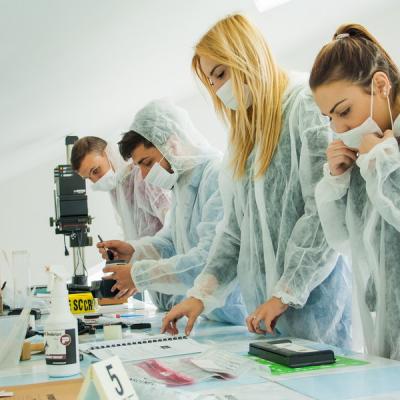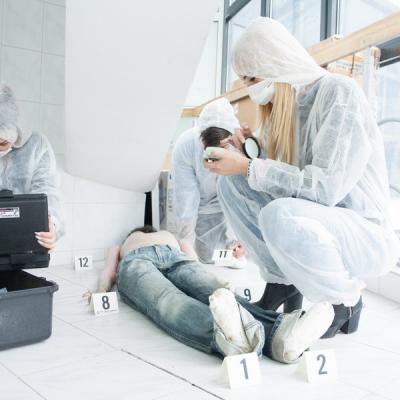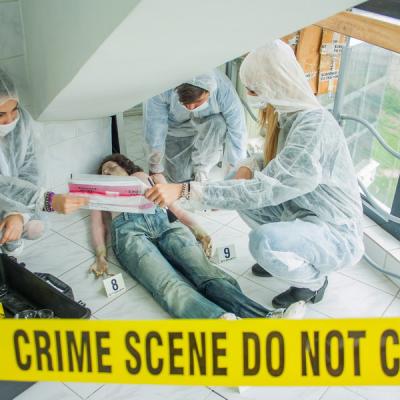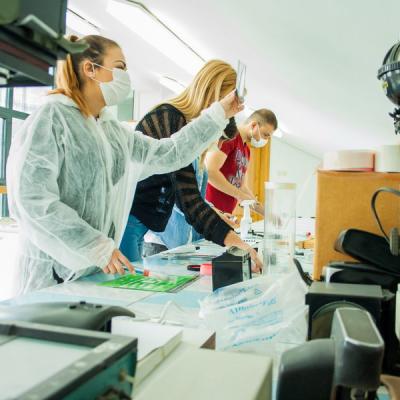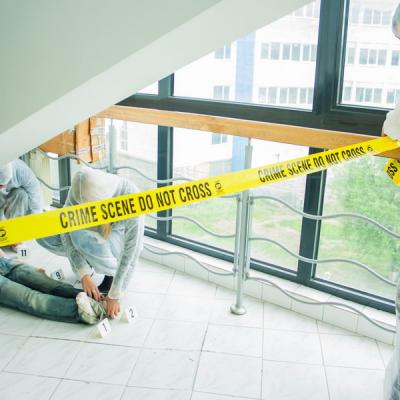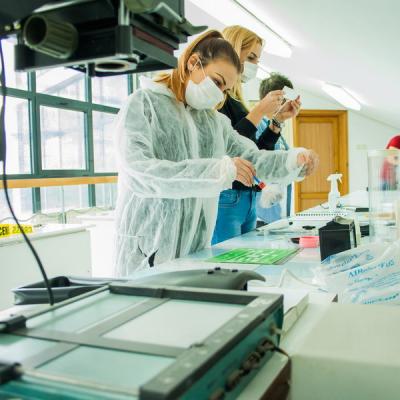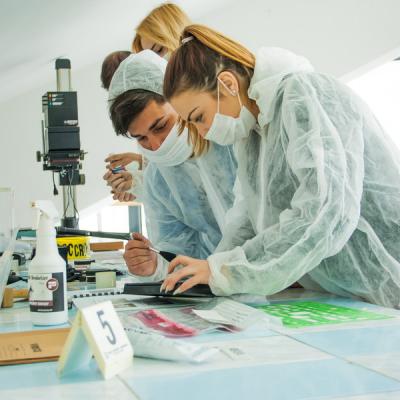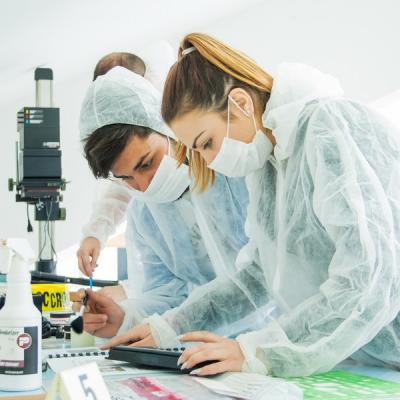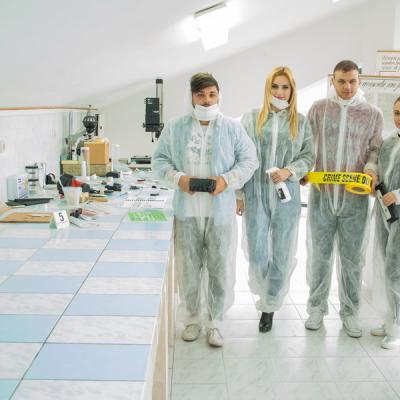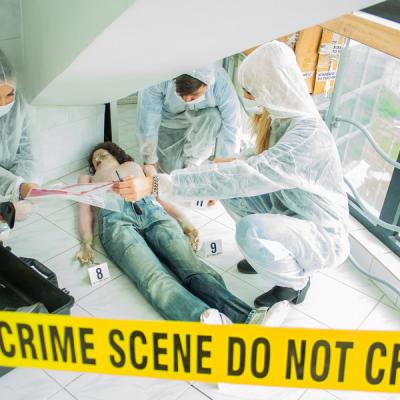Master Programs
European Union Law
Field of study:
Law
Education type:
Full-time (accredited)
Duration of studies:
3 semesters (1,5 years)
Credits: 90
Criminal science
Field of study:
Law
Education type:
Full-time (accredited)
Duration of studies:
3 semesters (1,5 years)
Credits: 90
European Law and Public Administration
Field of study:
Law
Education type:
-Full-time (accredited)
-Part-time (accredited)
Duration of studies
3 semesters (1,5 years)
Credits: 90
Full-time – full-time learning involves taking part in courses and seminars.
Part-time learning – part-time learning, case in which you only take part in compulsory application activities, teaching classes being replaced by individual study.
Distance learning - Distance learning is characterized by periodical tutorial meetings. The entire communication between student and professor is made through the Sakai Platform, „Danubius” University is one of the few higher education institutions that uses, at full potential and in full responsibility this education electronic platform.
European Union Law
The mission of the „Danubius" University of Galaţi to offer high quality education and research in a national and European context is also accomplished through the study program European Union Law.
This study program has the mission of fulfiling the legal training made during bachelor studies with an additional training in the field of law, offering master students a special opportunity to study European law in an interdisciplinary context of law, politics and philosophy by studying the principles, policies and regulations that are the foundation of a legal system in evolution.
Romania’s integration in the European Union creates the necessity to train specialists in the field of European law, and the „Danubius" University, offers, in this sense, high performance education, developed and improved through a complex research activity, according to the requirements and means offered by a modern and dynamic information society.
The program has the following general objectives:
- Promotion of effective quality management in the teaching and research process, focusing on the creative role of legal education offered by the „Danubius" University of Galaţi;
- Integration in the content of teaching activities of the spirit at the core of the intense law creation process in Romania, of the content of the new normative acts, derived from the modernization of Romanian society and the status of our country of European Union Member State;
- Cultivating respect for European values and institutional traditions of a free society;
- Developing the ability/competency of students to use the intellectual instruments gained in elaborating some personal analysis on the phenomena and processes in the reference field;
- Consolidating and diversifying teaching and scientific cooperation relations, integrating in national and international university networks based on performance and complementarity criteria;
- Initiation and support of quality scientific research programs, by collaborating with competitive partners, as well as participating in national and international competitions for the granting of scientific research projects;
- Stimulating interdisciplinary research, in accordance with national research priorities;
- Training students in scientific research activities to gain superior abilities of independent research and the ability to apply research results in specific situations of the institutional environment;
- Encouraging diversity and access to multiple graduate labor market opportunities, by ensuring adequate training;
- Developing partnerships with public institutions, in order to constantly adapt the education offer to the requirements of the labor market and to improve professional training of students.
The specific objectives of this study program aim to:
- Train future PhD students who want to follow an academic or research career;
- Train and improve highly qualified human resources in the field of law, in relation to Romania’s requirements of integration in the European Union, by improving the quality of training, the development of knowledge, the learning, adaptation, development and improvement of the know-how gained during basic university studies;
- Training abilities in the field of fundamental and applicative research;
- Creating abilities in the field of interdisciplinary research;
- Training qualified human resources in the field of European law and European policies;
- Graduates’ opportunity to be employed in European institutions;
- Becoming familiar with the practice of performance of international commercial contracts by studying European law;
- Knowledge of the European quality of products and services, in view of the integration in the European Union;
- Knowledge of the development and harmonization phase of the national standards system, in accordance with the requirements of European and international standardization institutions;
- Becoming familiar with attracting European financial resources and promoting participation in the international value exchange system.
Among the studied subjects we find:
1. Recognition and execution of decisions in the Legal Area of the European Union
2. European Union Law of Procedure
3. Labor contracts in comparative law
4. European legal cooperation in civil procedural law
The faculty has its own specialty laboratories (IT, multimedia labs), with adequate equipment for all subjects with such activities, with licenses for all necessary software, allowing the optimal performance of the classes for those subjects.
The university library is equipped with reading rooms and its own book collection for the subjects included in the study plans, for each university study cycle, and the resources necessary for the development of activities are included in the income and expenditure budgets. Also, in the library, students have free online access to data basis and specialty magazines from the country and from abroad.
The graduates of this master program can work as:
- External relations reviewer,
- European public servant,
- Legal harmonization reviewer/counsellor,
- Mediator,
- European public administration expert,
- European public administration consultant,
- Public procurement expert, European business counsellor,
- Diplomatic counsellor,
- Researcher in the field of legal science,
- Research assistant in the field of legal science.
European Law and Public Administration
The mission of the „Danubius" University of Galaţi to offer high quality education and research in a national and European context is also accomplished through the study program European Law and Public Administration.
Romania’s integration in the European Union creates the necessity to train specialists in the field of European law, and the „Danubius" University, offers, in this sense, high performance education, developed and improved through a complex research activity, according to the requirements and means offered by a modern and dynamic information society.
We also mention that, both in the city and in the Galati County there is an intense administrative life in the framework of the South-East Euro region.
In this sense, the master university study program European Law and Public Administration (DAPE) has the following general objectives:
- Promotion of effective quality management in the teaching and research process, focusing on the creative role of legal education offered by the „Danubius" University of Galaţi;
- Integration in the content of teaching activities of the spirit at the core of the intense law creation process in Romania, of the content of the new normative acts, derived from the modernization of Romanian society and the status of our country of European Union Member State;
- Cultivating respect for European values and institutional traditions of a free society;
- Developing the ability/competency of students to use the intellectual instruments gained in elaborating some personal analysis on the phenomena and processes in the reference field;
- Consolidating and diversifying teaching and scientific cooperation relations, integrating in national and international university networks based on performance and complementarity criteria;
- Initiation and support of quality scientific research programs, by collaborating with competitive partners, as well as participating in national and international competitions for the granting of scientific research projects;
- Stimulating interdisciplinary research, in accordance with national research priorities;
- Training students in scientific research activities to gain superior abilities of independent research and the ability to apply research results in specific situations of the institutional environment;
- Encouraging diversity and access to multiple graduate labor market opportunities, by ensuring adequate training;
- Developing partnerships with public institutions, in order to constantly adapt the education offer to the requirements of the labor market and to improve professional training of students.
The specific objectives of this study program aim to:
- Training specialists in the field of European law, especially of European public administration legislation, taking into consideration the public relations dimension, essential today for local communities;
- Offering a professional perspective for students looking for a career in public administration, and also in other services and professions that require such training;
- Training future PhD students that want an academic or research career (in research institutions, study departments of ministries and other institutions);
- Training a corps of professional public servants, familiar with the requirements and the functioning of European institutions;
- Developing the analysis and synthesis of public servants in public institutions;
- Ensuring adequate training for students (master students) concerning the European integration process and of the efforts necessary for Romanian public administration to achieve European standards in the field;
- Using the experience of university education in the country and abroad.
Among the studied subjects we find:
1. European Union institutional law
2. European public service
3. European social law
4. European environment law
5. European administrative law
6. Project management
7. Research methods and techniques. Case study
8. European financial institutions
9. European law child protection
The faculty has its own specialty laboratories (IT, multimedia labs), with adequate equipment for all subjects with such activities, with licenses for all necessary software, allowing the optimal performance of the classes for those subjects.
The university library is equipped with reading rooms and its own book collection for the subjects included in the study plans, for each university study cycle, and the resources necessary for the development of activities are included in the income and expenditure budgets. Also, in the library, students have free online access to data basis and specialty magazines from the country and from abroad.
Potential career pathways
The graduates of this master program can work as:
- Public servant,
- Public administration specialist,
- Public institution counsellor,
- European public servant,
- Public administration inspector,
- Workforce and unemployment counsellor/expert,
- Structural funds and European cohesion expert,
- European affairs counsellor, public sector internal auditor,
- Professional competencies evaluator.
Crime science
The mission of this program is teaching (education supplier) and scientific research, involving, on one hand, transmitting specialty knowledge in the field of crime science and, on the other hand, training them in research activities.
The deep reform process of crime legislation that Romania started upon entering the European Union had and still has a significant impact on crime science. The phases and the consequences of this reform process must be known by law professionals, through attentive and solid study, under the guidance of specialty professors.
The master university study program Crime science also sets out to get to know the means to prevent and fight crime, phenomenon with a high increase and diversification. In this manner, the program responds to stringent training needs in various fields of activity: justice, legal practice, police and others.
The complexity of legal realities in Romania, along with the fact that our country is now a member of the European Union imposes the existence of some master programs in this field, especially since the crime policies are going through a constant process of harmonization. Actually, adopting some new Codes – criminal and criminal procedure – represents the creation of a coherent legislative framework, with the purpose of translating, through this framework, the regulations adopted in the European Union.
Furthermore, Romania’s accession to the European Union requires knowing the criminal legislation in European countries, as well as the progress made in the direction of unifying some criminal law institutions and criminal procedure law. From this perspective, we organized the first master program of Crime science; the courses of this master are created as a way to improve and complete the professional training of specialists in crime law, but also of other categories of university graduates.
The specific objectives of this program are:
- Presenting the new Crime Code and the new Criminal Procedure Code;
- Presenting the role of the Constitutional Court in judging unconstitutionality exceptions in criminal matters, as well as the role of the European Court for Human Rights in this sense;
- Analysis of the opinions from the doctrine related to recent changes in the legislation;
- Presenting legal regulations in the matter of crime science, with explicit reference on the aspects of corruption, organized crime, money laundering, drug consumption, fiscal evasion, information crimes etc.;
- Comparative analysis of the main criminal institutions and the existing criminal procedures in European countries;
- Analysis of the legal practice in the matters of crime law and criminal procedure, in agreement with the existing solutions in this field in European Union states;
- using the experience in university education in the country and abroad.
Some are the studied subjects of this program are:
1. Advanced criminal law special part
2. Forensics: modern techniques and procedures of investigation
3. European legal system of human rights protection
4. Criminal executional law
5. Institutions of criminal procedure law
6. Institutions involved in fighting international crime
7. Criminal business law
8. Individualization of criminal law sanctions
The faculty has its own specialty laboratories (IT, multimedia labs), with adequate equipment for all subjects with such activities, with licenses for all necessary software, allowing the optimal performance of the classes for those subjects.
The university library is equipped with reading rooms and its own book collection for the subjects included in the study plans, for each university study cycle, and the resources necessary for the development of activities are included in the income and expenditure budgets. Also, in the library, students have free online access to data basis and specialty magazines from the country and from abroad.
Potential career pathways
The graduates of this master program can work as:
- Corruption prevention and fight expert,
- Forensics expert,
- Legal sciences researcher,
- Research assistant in the field of legal sciences,
- Customs liaison officer,
- Judge,
- Prosecutor,
- Lawyer.
Virtual Communities’ Law
The university master study program “Virtual Communities’ Law” is organized in the Faculty of Law, Danubius University of Galați, Full-time (accredited) with a duration of 1,5 years and for a number of 90 credits.
The specific objectives of the master program “Virtual Communities’ Law” are:
– Offering a big picture on national, European and international legislation applicable to relations specific to the virtual environment;
– Advanced knowledge and understanding of the special legislation that applies to virtual communities;
– Knowledge of the European and international institutions and organizations with competence in the field of virtual communities;
– Explaining and understanding new legislative changes in different states, changes with an impact in the activity of virtual communities;
– Understanding the role of virtual communities in the diversity of commercial relations specific to the online environment;
– Developing the ability to analyze and evaluate different practical situations occurring in the sphere of relations in virtual communities and present in the practice of courts;
– Ability to elaborate scientific researches whose result is lege ferenda proposals and efficient solutions for the national, European and international legislation regulating the activity of virtual communities.
The study plan of the university master program “Virtual Communities’ Law” is structured in three semesters and it contains the following subjects that approach, in a flexible and modern manner the following topics:
– General theory of virtual communities;
– Electronic commerce law;
– Consumers rights in the virtual environment;
–On-line communication platforms;
– Alternative solutions to litigations – negotiation, arbitration, mediation, conciliation;
– Legislation on security in the on-line environment;
– Protection of fundamental rights in social media;
– Entrepreneurship and business administration in the virtual area;
– Information crimes;
– Prevention and fighting information crimes;
– Investigating information crimes;
– Copyright and intellectual property in cyberspace;
– Legislation of on-line communication;
– Specialty practice.
The mission of the master program is dual. On one hand, it consists in training professionals with legal studies that which to orient their legal expertise towards social media relations, professionals of the legal implications of communication and of the transactions made through the Internet and, on the other hand, the program aims to offer the legal specialty know-how specific for virtual communities to all those working in fields such as journalism, IT, social media, business etc.
The specific objectives of the master program “Virtual Communities’ Law” are:
– Offering a big picture on national, European and international legislation applicable to relations specific to the virtual environment;
– Advanced knowledge and understanding of the special legislation that applies to virtual communities;
– Knowledge of the European and international institutions and organizations with competence in the field of virtual communities;
– Explaining and understanding new legislative changes in different states, changes with an impact in the activity of virtual communities;
– Understanding the role of virtual communities in the diversity of commercial relations specific to the online environment;
– Developing the ability to analyze and evaluate different practical situations occurring in the sphere of relations in virtual communities and present in the practice of courts;
– Ability to elaborate scientific researches whose result is lege ferenda proposals and efficient solutions for the national, European and international legislation regulating the activity of virtual communities.
The study plan of the university master program “Virtual Communities’ Law” is structured in three semesters and it contains the following subjects that approach, in a flexible and modern manner the following topics:
– General theory of virtual communities;
– Electronic commerce law;
– Consumers rights in the virtual environment;
–On-line communication platforms;
– Alternative solutions to litigations – negotiation, arbitration, mediation, conciliation;
– Legislation on security in the on-line environment;
– Protection of fundamental rights in social media;
– Entrepreneurship and business administration in the virtual area;
– Information crimes;
– Prevention and fighting information crimes;
– Investigating information crimes;
– Copyright and intellectual property in cyberspace;
– Legislation of on-line communication;
– Specialty practice.
The subjects included in the study plan of this master program ensures both the ability to gain some specialty know-how related to different public and private law that are of interest for the entire activity performed in the online environment as well as the understanding of some relevant legal aspects in the recent practice of national, European and international courts in the matter of e-commerce, of the non-compliance with the copyright law – plagiarism, failure to respect consumer rights in on-line transactions, failure to respect human rights in the virtual environment (freedom of expression, the right to private life etc. ), non-compliance with criminal law norms in reference to the analysis of serious crimes committed on-line, through the Internet: harassment, informatics fraud, child pornography, money laundering etc.
The students perform specialty practice in the institutions where they work, if this activity is connected to the field of the master program or, if this is not the case, in economic organizations, central or local public authorities etc. Consequently, the curricula of this master program, ensures that professionals in the legal field gain competencies that help them specialize in the field of the activity of virtual communities, but also for specialists or other categories of people already working or who want to build a career in which it is necessary to have specific know-how about virtual communities’ law.
Studying the subjects in the study plan of the international master program Virtual Communities’ helps students gain the following competencies (RNCIS grid):
Professional Competencies
– Profound knowledge of the area of specialization and of the theoretical, methodological and practical developments specific to the legal field; adequate usage of the specific language of the legal field in general and of Virtual Communities’ Law in particular, in communicating with different professional environments;
– Usage of specialty knowledge to explain and interpret new situations, in larger contexts associated with the legal field;
– Integrated use of the conceptual and methodological apparatus, in incomplete information circumstances, to solve new theoretical and practical issues;
– Refined and pertinent use of criteria and evaluation methods to formulate value judgments and found constructive decisions in the legal field;
– Elaboration of professional and/or research projects, using an innovative and varied array of quantitative and qualitative methods.
Transversal Competencies
– Performing some complex professional tasks, in conditions of professional autonomy and independence;
Taking on some leadership roles/functions of the activity of professional groups and institutions in the field of virtual communities’ law;
– Self-control of the learning process, diagnosis of training needs, reflexive analysis of one’s own professional activities.
POTENTIAL OCCUPATIONS VIRTUAL COMMUNITIES’ LAW MASTER
- Judicial Administrator – 241219
- Company Administrator– 242111
- Consular Agent – 242212
- Legislative harmonization Analyst– 261912
- Research Assistant in the field of Legal Science– 261916
- University Assistant – 231001
- Internal Auditor in the public sector – 241306
- Lawyer – 261101
- Researcher in the field of legal sciences– 261915
- University Associate Professor – 231002
- Public Administration Counsellor– 242201
- Evidentiary Hearing Counsellor– 261921
- Judiciary Assistant 261205
- Forensics Expert 261902
- Process server – 261901
- Structural funds and European Cohesion Expert– 242213
- Expert in the application of harmonized legislation in the field of industry and commerce – 242219
- Legislative Harmonization Expert– 261911
- Legal Expert – 261903
- Corruption fighting and prevention Expert– 261920
- Judge – 261202
- Inspector Judge– 261204
- Solicitor – 261102
- University Lecturer – 231003
- Insolvency administrator – 241218
- Assistant Magistrate – 261203
- Chief Assistant Magistrate – 111214
- Mediator – 243202
- Member of the Superior Council of Magistrates – 111130
- Notary – 261906
- Prosecutor – 261201
- University Professor – 231005
- Secondary education teacher– 233002
- High school education teacher– 233001
- External relations reviewer– 242215
- Insurance system Specialist– 241250
 ROMÂNĂ
ROMÂNĂ  ENGLISH VERSION
ENGLISH VERSION 





